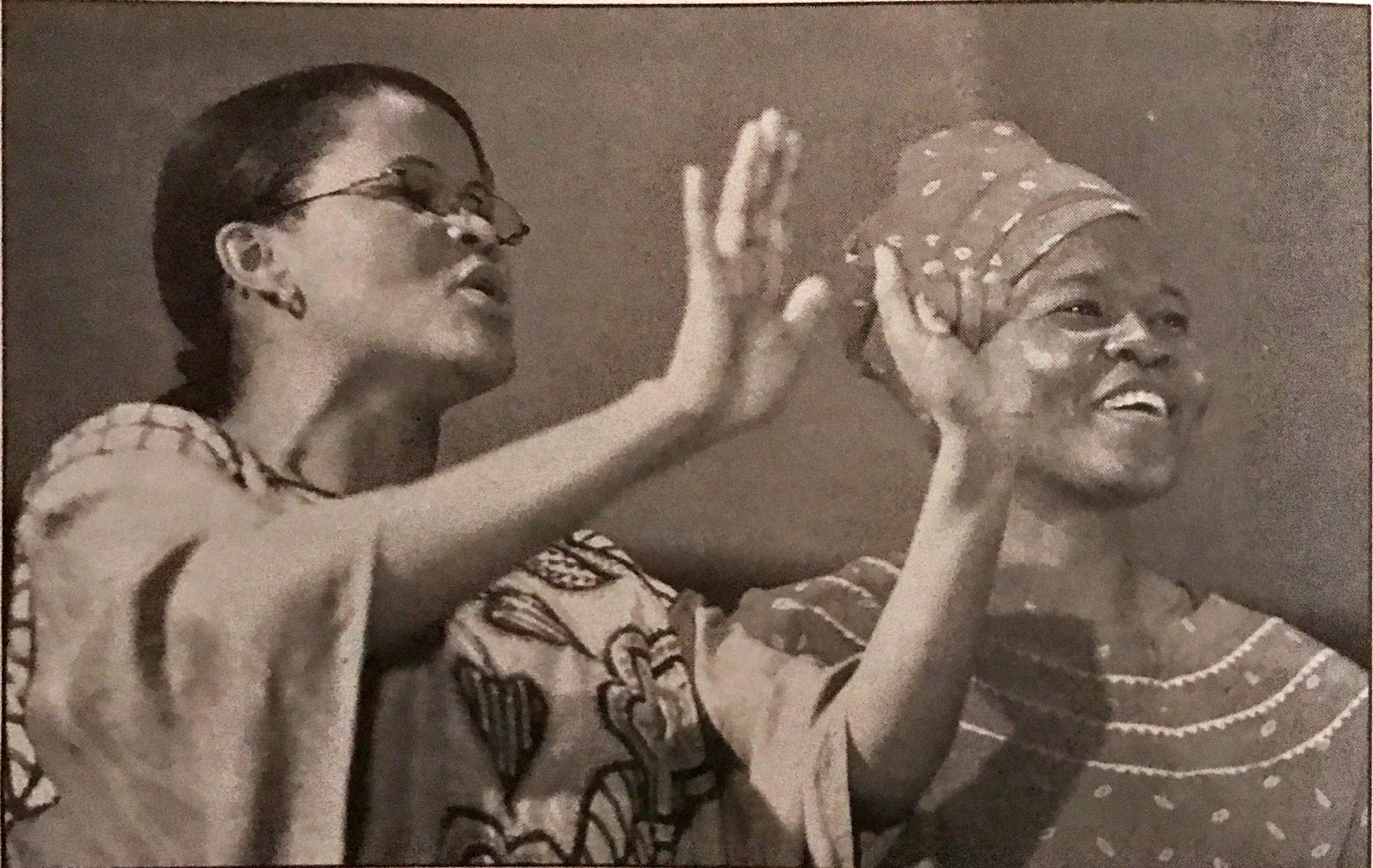By Allan Woods
The children are restless and the congregation seems weary. After an hour of songs, skits and poems from people representing Kenya, Zimbabwe, Ghana and several other African countries, a tall, bespectacled pastor stands in a front-row pew and introduces the singers from Botswana.
The crowd politely welcomes the next group—until the singing starts. Although the more than 200 who’ve come on this Saturday night can’t see where the voices are coming from, it’s obvious from the first note that this song and dance is different from the rest.
Slowly, 11 Motswana—men and women from Botswana—march onto the stage, their feet lightly stomping in time to a rich harmony that reaches the high ceilings of the old church and fills the room.
Gana Sekwakwa leads the song, which is about pula—rain. She’s wearing a traditional pale-blue dress with lightly coloured flowers embroidered on the shoulders.
Thandi Segola, wearing a red-and-white patterned dress and headdress, stands shoulder-to-shoulder with Sekwakwa in the first of three rows they’ve filed into. She sings with a big, shy grin across her face.
The congregation at the African Immigrant Concert Series jumps to their feet to see where the upbeat sounds emanate from. The congregation is dazzled and smiling.
The Sekwakwa’s voice soars alone as her hand reaches into the air signalling the end of the song.
“We are students at Ryerson and the University of Toronto,” Segola says.
Sekwakwa and Segola have gathered with their singing group in St. Luke’s United Church, at the corner of Carlton and Sherbourne Streets to give something back to the city that’s giving them an education and fostering the development of their country.
“There’s so much that people in Canada don’t know about people in Africa,” Sekwakwa says.
She and Segola, two health inspectors from Botswana, are in Canada to study public health at Ryerson. The government of Botswana is funding their training in an effort to improve health standards and stop the spread of disease.
They are two of four Motswana—residents of the African country—studying third-year public health at Ryerson. More than 600 others from their country are studying across North America.
In Botswana, Sekwaka and Segola’s work takes them to cities and villages to teach people essential things such as boiling water to kill bacteria, proper food hygiene and AIDS awareness.
Segola works primarily in cities, but Sekwakwa has spent her entire career travelling between 42 villages that can be as far as 75 kilometres apart.
A large part of their job is to spread information about health issues, which is a challenge in villages or towns without the luxuries of television or the Internet.
“Usually there’s a chief in the village that calls everyone together,” Sekwakwa says. Other times, messages are sent by radio or from a central post office.
The confidence they convey among the largely African congregation at the concert tonight is a far cry from how they felt when they arrived in Toronto last year.
It was the first time they’d ever seen a streetcar or travelled underground in a subway. Having to find their way around in such a dense city was bewildering.
“We would take a streetcar to places but we didn’t know that you had to step down for the door to open, so then we took taxis whenever we had to go somewhere,” Thandi reclass. “It got expensive.”
Approaching the end of their first year in Toronto, they are relaxed and fast with smiles. They complain about the amount of work they have to do for their classes and about not getting to bed before 2 a.m. most nights—almost like regular students.
Except they only get to complain about these sorts of things until they graduate Ryerson with a degree in public health. Then they’ll return to Botswana—to their jobs, husbands, children and friends—to play their part in the development of their country.
Although their time in Canada is spent learning, tonight they are teaching—or perhaps, inspiring. At the concert, they sing only three songs—and the congregation seems to beg for more. The last song, solo by Sekwakwa, is “A Prayer for Africa.”
“Lord have mercy on Africa. Bring an end to all the wars,” she sings in Setswana, the native language of Botswana, eyes closed and hands clutched to her heart.










Leave a Reply